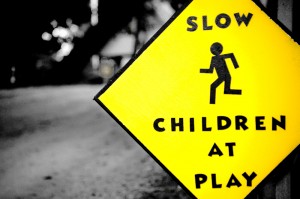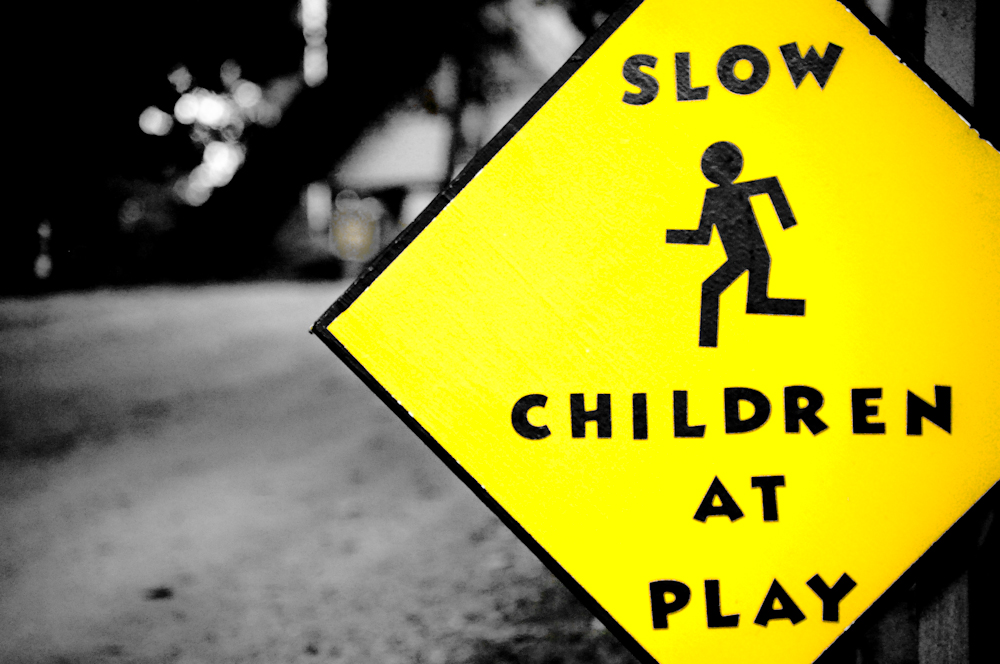“You can discover more about a person in an hour of play than in a year of conversation.”
It is not clear if Plato was applying these words to education but they are, nevertheless, apropos to our contemporary work in schools. With the focus on grades, curriculum coverage, and standardized testing in schools, there is a concern that the value of play and the corresponding intrinsic benefits may be lost due to a focus on learning that is too narrow in scope. To be clear, I am not diminishing the importance of academic excellence, rigor, discipline, and high standards in any way, as they represent the cornerstones of any effective educational program. I am, however, highlighting the importance of providing students of all ages with the opportunity for play.
Recommended Blog Post – Play: Is it Becoming Extinct?
Recent EAB events highlighted and reminded me of the significance of learning from play. The first event occurred during a high school assembly when student leaders, with a focus on further building school spirit, were preparing the grade levels for a friendly competition. It was not the competition but rather the student learning that was prominent. Students were required to effectively collaborate, strategize, communicate, and strengthen relationships. The student organizers were impressive as they coordinated an entire high school, saw to all details, and comfortably led the process, further developing very important skill sets.
The Club EAB program highlighted another important aspect of play. As part of the afterschool offerings, high school students work with younger students in activities that include robotics, cooking, rugby, ballet, and band, to name a few. This week, I was observing the basketball activity and noted the serious focus of the students, the building of relationships, and the kind, supportive, and patient nature of the student leaders. To put it another way, a high level of emotional intelligence is developed and exhibited through the Club EAB program.

Factors associated with emotional intelligence are the keys to conflict resolution. During the course of a year, it is inevitable that there will be minor conflicts among students during recess and play, which is an element of our human nature. What is fundamental for students, however, is the ability to develop high levels of empathy, understanding, listening skills, self-advocacy, and conflict resolution skills. In a recent survey conducted in the United States, respondents were asked to name the most important long-term goals of K-12 education. By a large margin, respondents ranked building character above all other goals, including preparing students for the workforce.
Recommended Video – Emotional Intelligence
Finally, the last event influencing the motivation for this post was the faculty-student softball game. While the dominant student victory was a stark reminder that the faculty’s glory days in sport may be behind us (at least, I speak for myself), the game was also a reminder of the importance of teamwork, humility, grit, commitment, and preparedness. In addition, sport teaches us about the significance of goals that are beyond us and, in turn, how to win and lose with dignity and grace.
If EAB is to achieve its mission to “cultivate responsible and contributing citizens and leaders,” then the concept of learning from play must work in conjunction with our paramount focus on academic excellence.
Featured image: cc licensed ( CC BY-NC-ND 2.0 ) flickr photo by Matthew Loberg: http://www.flickr.com/photos/mloberg/4139266516/
“Você pode descobrir mais sobre uma pessoa em uma hora de jogo do que em um ano de conversa.”
Não está claro se Platão estava aplicando estas palavras a educação, mas elas são, no entanto, o propósito do nosso trabalho contemporâneo nas escolas. Focando nas notas, currículo e testes padronizados, existe a preocupação de que o valor do jogo e os benefícios intrínsecos correspondentes possam ser perdidos devido ao foco na aprendizagem, que é muito estreito em seu escopo. Para ser claro, não estou diminuindo a importância da excelência acadêmica, do rigor, da disciplina e dos padrões elevados, uma vez que representam os pilares de um programa educacional eficaz. Estou, no entanto, destacando a importância de proporcionar aos alunos de todas as idades a oportunidade de jogar.
Leitura recomendada do blog – Play: Is it Becoming Extinct?
Os eventos recentes da EAB destacaram e me lembraram da importância do aprendizado do jogo. O primeiro evento ocorreu durante uma assembleia da escola, quando líderes estudantis, com foco na construção de um espírito escolar, estavam preparando as séries para uma competição amigável. Não era a concorrência, mas sim o aprendizado do aluno que era proeminente. Os alunos eram obrigados a colaborar de forma eficaz, com estratégias, boa comunicação ,além de fortalecer relacionamentos. Os alunos que estavam organizando impressionaram com a forma como coordenaram toda a escola, cuidando de todos os detalhes, e liderando o processo confortavelmente, além de desenvolver ainda mais habilidades muito importantes.
O programa Clube EAB destacou outro aspecto importante do jogo. Como parte das ofertas depois da escola, os alunos do ensino médio trabalham com os alunos mais jovens em atividades que incluem robótica, culinária, rugby, ballet e banda, entre outros. Esta semana, eu estava observando o basquete e percebi a concentração dos alunos, a construção de novas relações, além do apoio e da paciência da liderança estudantil. Dito de outra forma, um alto nível de inteligência emocional é desenvolvido e exibido através do programa Clube EAB.
Fatores associados à inteligência emocional são a chave para a resolução de conflitos. Durante o ano, é inevitável que haja pequenos conflitos entre os alunos durante o intervalo e os jogos, pois fazem parte da nossa natureza humana. O que é fundamental para os alunos, no entanto, é a capacidade de desenvolver altos níveis de empatia, compreensão, capacidade de escuta, de auto-defesa e habilidades para resolver conflitos. Em uma recente pesquisa (survey) realizada nos Estados Unidos, os entrevistados foram convidados a nomear os objetivos mais importantes a longo prazo na educação K-12. A maioria dos entrevistados classificaram a construção do caráter, acima de todos os outros objetivos, incluindo a preparação dos alunos para o mercado de trabalho.
Vídeo recomendado – Emotional Intelligence
Finalmente, o último evento que me motivou para escrever essa mensagem foi o jogo de softball entre os alunos e o corpo docente. Enquanto a vitória dos alunos foi um claro lembrete de que a glória do corpo docente nos esportes ficou pra trás (pelo menos pra mim), o jogo também mostrou a importancia do trabalho em equipe, da humildade, coragem, compromisso e preparação . Além disso, o esporte nos ensina sobre a importância das metas que estão além de nós e, por sua vez, como ganhar e perder com dignidade e graça.
Se EAB conseguir atingir a sua missão de “cultivar cidadãos e líderes responsáveis e contribuintes”, então o conceito de aprendizagem do jogo deve ser trabalhado em conjunto com o nosso foco primordial na excelência acadêmica.
Featured image: cc licensed ( CC BY-NC-ND 2.0 ) flickr photo by Matthew Loberg: http://www.flickr.com/photos/mloberg/4139266516/
